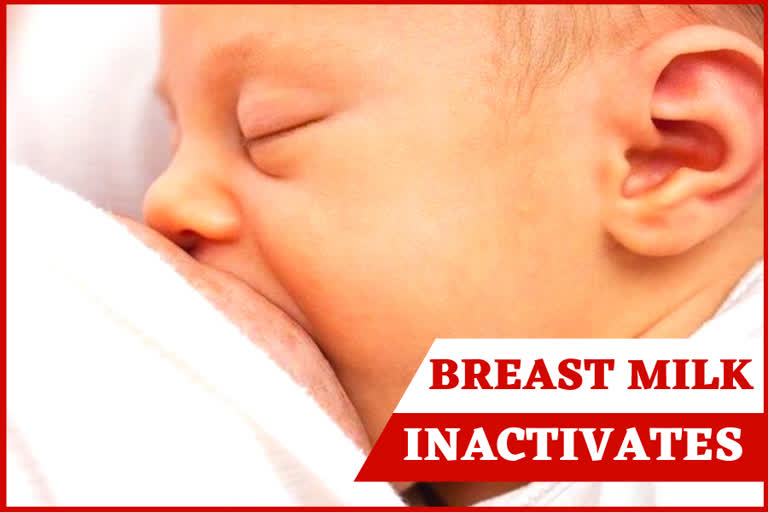Sydney: New research adds to the growing body of evidence that pasteurising human milk inactivates the virus that causes COVID-19.
"While there is no evidence that the virus can be transmitted through breast milk, there is always a theoretical risk," said study lead author Greg Walker from the University of New South Wales in Australia.
According to the study published in the 'Journal of Paediatrics and Child Health', there are five human milk banks in Australia. As the COVID-19 pandemic evolves, these milk banks continue to provide donated breast milk to pre-term babies who lack access to their mother's own milk.
Read also:Women with virus should still breastfeed: WHO
Donors are screened for diseases and the milk is tested and pasteurised to ensure that it is safe for medically fragile babies.
"We've seen in previous pandemics that pasteurised donor human milk (PDHM) supplies may be interrupted because of safety considerations so that's why we wanted to show that PDHM remains safe," Walker said.
Read also:Breastfeeding Protects Babies From illnesses
For this study, the team worked in the Kirby Institute's PC-3 lab to experimentally infect small amounts of frozen and freshly expressed breast milk from healthy Lifeblood Milk donors. They then heated the milk samples -- now infected with SARS-CoV-2 to 63 degree Celsius for 30 minutes to simulate the pasteurisation process that occurs in milk banks. The study found that after this process, they did not contain any infectious, live virus.
